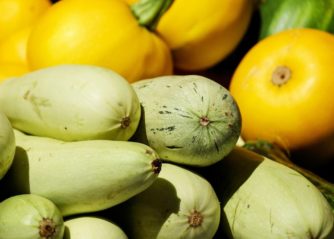Vegan Dessert: Exploring Delicious and Sustainable Sweet Treats

Introduction:
Vegan desserts have gained immense popularity in recent years, aligning with the growing preference for plant-based and sustainable lifestyles. These delightful treats not only cater to those following a vegan diet but also appeal to individuals seeking healthier alternatives to traditional desserts. In this article, we will provide a comprehensive overview of vegan desserts, including their types, popularity, quantitative measurements, key differences, and a historical analysis of their advantages and disadvantages.
The World of Vegan Desserts

Vegan desserts encompass a wide range of sweet delicacies that exclude any animal-derived products, such as eggs, milk, and honey. With ingenious recipe adaptations and creative use of plant-based ingredients, vegan desserts offer a guilt-free indulgence for anyone with a sweet tooth. Some popular types of vegan desserts include:
1. Dairy-Free Ice Creams:
Dairy-free ice creams are a hit amongst vegans and lactose-intolerant individuals. These frozen delights use bases like coconut milk, almond milk, or cashew cream, resulting in creamy textures and a variety of mouthwatering flavors to choose from.
2. Nutty Delights:
Nut-based desserts, such as almond or cashew cheesecakes, offer a rich and decadent experience. These creamy creations are often combined with fruits or chocolate to create luscious treats that rival their non-vegan counterparts.
3. Raw Desserts:
Raw desserts consist of unprocessed and uncooked ingredients, preserving their natural nutrients. From raw brownies to fruit tarts, these desserts showcase the vibrant flavors and textures of fresh produce in a guilt-free package.
4. Decadent Chocolate Treats:
Vegan chocolates have become a favorite indulgence for many. Made from cocoa butter and plant-based sweeteners, these chocolates offer a range of flavors and varieties, including dark, milk, and white chocolate options.
5. Baked Goods:
Vegan baking has revolutionized traditional desserts, proving that eggs and dairy are not essential for achieving moist cakes, fluffy muffins, and chewy cookies. Innovative plant-based substitutes such as flaxseeds, applesauce, or aquafaba (chickpea brine) seamlessly replace animal-derived ingredients.
Quantitative Measurements of Vegan Desserts
When it comes to quantifying the impact of vegan desserts, several aspects can be considered:
1. Environmental Footprint:
Vegan desserts have a significantly lower carbon and water footprint compared to their non-vegan alternatives. The production of animal-derived ingredients, including dairy and eggs, contributes to greenhouse gas emissions and water pollution. By opting for vegan desserts, individuals can contribute to reducing environmental degradation.
2. Nutritional Value:
Vegan desserts, when crafted with wholesome and nutrient-dense plant-based ingredients, can provide a healthier alternative to traditional desserts. Higher fiber content, lower saturated fat, and zero cholesterol are some of the nutritional benefits offered by these treats. However, it’s essential to note that not all vegan desserts are inherently healthy, as added sugars and excessive fats can still be included.
Distinguishing Different Vegan Desserts
Although vegan desserts share the commonality of being free from animal products, they offer distinct textures, flavors, and experiences. Some key differences between various vegan desserts include:
1. Texture:
Vegan ice creams often showcase a creaminess that rivals traditional dairy-based ice creams. In contrast, raw desserts tend to have a more refreshing and naturally textured mouthfeel due to their focus on using fresh and unprocessed ingredients.
2. Flavor Profiles:
Vegan baked goods can achieve similar flavors as non-vegan versions, while others may have a distinguishable taste due to the plant-based substitutes used. For example, cakes made with applesauce may have hints of apple flavor, adding a unique twist to the traditional recipe.
Historical Overview of Pros and Cons of Vegan Desserts
Vegan desserts have come a long way in terms of taste, quality, and acceptance. However, their historical journey is marked by certain advantages and disadvantages, including:
Advantages:
– Health-conscious choice: Vegan desserts tend to be lower in saturated fat and cholesterol, making them a healthier option when consumed in moderation.
– Sustainable and ethical choice: By choosing vegan desserts, individuals contribute to reducing the environmental impact associated with animal agriculture.
– Inclusivity: Vegan desserts cater to a diverse audience, including those with lactose intolerance, egg allergies, or dietary restrictions due to religious beliefs.
Disadvantages:
– Taste and texture variations: Some people argue that vegan desserts may not always match the taste and texture of their non-vegan counterparts, particularly in baked goods that traditionally rely on eggs and dairy.
– Convenience and availability: While vegan desserts are gaining popularity, they may still be more challenging to find compared to mainstream desserts in some areas.
In conclusion, vegan desserts have paved the way for a creative and sustainable approach to satisfy our cravings for sweet treats. With their extensive variety, nutritional benefits, and minimized environmental impact, the world of vegan desserts continues to evolve, enticing both vegans and non-vegans alike. So, whether you are exploring the realm of dairy-free ice creams, relishing in nut-based delicacies, or indulging in guilt-free chocolates, vegan desserts offer a delightful journey towards a healthier and more compassionate indulgence.
















































